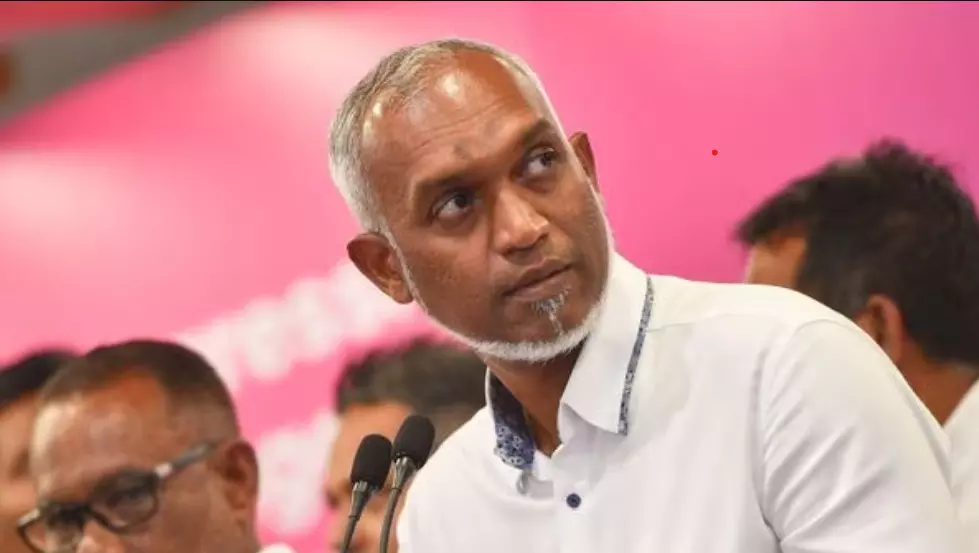Shifting sands

More than a month has passed since Mohamed Muizzu swore in as the president of Maldives, and India’s fears have come true while consolations are fast dissipating. It was speculated by analysts that Muizzu’s “India out” campaign rhetoric will undergo dilution after Muizzu assumes the office. This, however, has not happened. Muizzu appears resolute to wean Maldives away from India, taking it closer to China and Turkey, among others. He has taken a slew of prompt measures in this regard. In a break from convention, Muizzu, along with First Lady Sajidha Mohamed, went on their first official trip to Turkey — rather than India. This was a strong enough signal to indicate that Maldives, under Muizzu, is willing to diversify its international engagement while limiting the role of its longstanding, trusted ally India. It may be recalled that within hours of his swearing in, Muizzu “formally requested” India to “withdraw its military personnel” from the Indian Ocean archipelago. He asserted that Maldivian people have given him a mandate to undertake such a move, and “expressed hope that India will honor the democratic will of the people of the Maldives.” Furthermore, the Maldives Cabinet decided against renewing a Memorandum of Understanding (MoU) with India for cooperation in hydrography. India holds proven expertise in this domain and has been serving as a reliable partner for several countries in the region. The political fraternity in Maldives is divided on the issue of India. Muizzu’s predecessor, Ibrahim Solih, who ruled the country from 2018 to 2023, was a staunch supporter of India. Muizzu, on the other hand, is agonistic towards India, and more inclined in favour of China and Middle-East countries including Turkey. He is on a trail to undo many of the policy decisions taken by the Solih regime. The stance adopted by Muizzu is more similar to that of former president Abdulla Yameen — the proponent of “India out” principle who ruled before Solih from 2013 to 2018. This continuity of anti-India stance indicates that there is structured criticism of the Indian involvement in Maldives, which is fanned by certain political outfits who largely feed on fake and manufactured public opinions. Throughout the election campaign, the Progressive Party of Maldives (PPM), led by Muizzu, asserted that India intends to utilise the military base under construction on the island of Uthuru Thila Falhu, near Male, as part of a strategy to assert control over the nation. It goes without saying that such an opinion is misleading, and merely aims at reaping political dividends. India has a fairly clean record towards respecting the sovereignty and integrity of its neighbours, irrespective of their size and the power they wield. Moreover, the presence of Indian troops in the country, aimed at providing training to their Maldivian counterparts, is very limited. On the contrary, countries like China — towards which the new Maldivian regime is inclined — have a dismal record when it comes to respecting the territorial integrity and sovereignty of their neighbouring countries. Evidently, the shift in foreign policy that Maldives aims at is fraught with risks, and can put the nation in a precarious geopolitical and economic situation in the long run. At the same time, it stands to lose a reliable partner in India. It may be recalled that be it the 2004 Tsunami or the recent Covid-19 pandemic, India has been quick and honest with its aid and assistance to Maldives. In fact, India stood by Maldives even as far back as 1988 when a foreign mercenary-backed coup was attempted. It is true that India has economic, strategic, and logistic interests tied to the stability of Maldives, but it is Maldives that will emerge as the biggest sufferer of Muizzu’s decisions. Reports suggest that 50 per cent of India’s external trade and 80 per cent of its energy imports transit through Indian Ocean Sea lanes. While the leadership in Maldives has much to reflect upon, India, too, should take a few lessons from the unfolding drama. It needs to recalibrate and rebrand its relationship with smaller nations in a manner that not only is democratic, but also seems democratic. Also, it still has time to invoke pragmatism to maintain good ties with Maldives.



